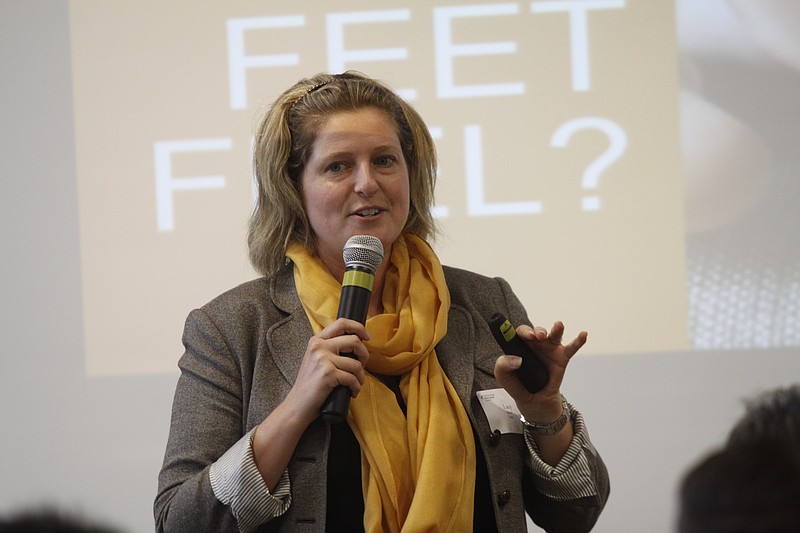When city leaders and planners recast and re-branded Chattanooga as Gig City, they did so in an attempt to attract a certain type of people with a certain way of seeing the world and their role in it.
By promoting the tool - the Internet, the Gig - leaders thereby, consequently, promoted the particular ethos and mindset behind the tool.
They weren't attracting farmers and the farming mind. Or mechanics. Or bakers. Or nuns.
They wanted the Gig Mind.
City leaders, be careful what you wish for.
That mindset - the Gig Mind - doesn't always play by the old rules.
The Gig Mind is disruptive. Anything but passive, the Gig Mind hacks away at conventionalism. Anything but meek, it rebels against traditionalism and customs for customs' sake, allowing it to see entry points into solutions that other minds - here's looking at you, 20th century - couldn't.
Hackers, Internet entrepreneurs and millennial startups are not yes-men and yes-women. Their worst crime is conformity. Second worst? Apathy.
Just ask one of the best.
"Hackers are popularly considered to be troublemakers, but they are also dedicated problem-solvers," Sean Parker wrote in the Wall Street Journal.
He would know. Parker is the captain of the new Internet industry, having given rise to Napster, Plaxo and Facebook, all of which represent this Gig Mind: new communities of sharing, interaction and democratic involvement.
Parker said hacker culture is bound by a desire to solve problems in new ways.
Like cancer.
Earlier this month, Parker announced a $250 million plan around the growing field of cancer immunotherapy. His idea - thrilling to science, and equally so to 21st century philanthropists - will unite 300 top researchers from 40 different labs and six different cancer centers, fostering a spirit of cooperation, not competition.
Notice what Parker could have done. He could have taken his millions and donated it to a hospital, or cancer center. (Maybe they would have named the new wing after him.)
But he didn't.
Instead, with cavalier millennial confidence, he started his own center.
And before that, Parker created his own $600 million charity that will, in his words, "apply the lessons learned from Silicon Valley start-ups to our philanthropic initiatives." Like stopping the spread of Third World malaria.
That's the Gig Mind.
That's the culture of hackers and Internet pioneers.
Instead of giving away money to a 20th century institution, they'll start their own.
Instead of growing fat and happy with their money, they'll do something with it.
"They are intensely idealistic," Parker continued, "so as they begin to confront the world's most pressing humanitarian problems, they are still young, naive and perhaps arrogant enough to believe that they can solve them."
So, are those the people populating Gig City?
I hope so.
Because Gig City is also crumbling apart.
We are a city concussed with violence.
Our school system is withering; our school board is arrested in myopic, tone-deaf dysfunction.
Communities remain divided racially, economically, culturally.
We are a city - and county - that is perversely still drawn to old ways that don't work anymore. (Chattanooga 2.0? After Thursday's board meeting, it's more like Chattanooga 1972.)
Gig City is the best of places, and the worst. For some who live in generational and traumatic poverty, Gig City is no more real than Shangri-La. We've become a place where, as Tennessee State professor Dr. Ken Chilton put it, inequality is the new normal.
So can the Gig Mind and all its thinkers solve these problems? Can it offer transformational tools and Sean Parker-like ideas?
Does the Gig have a mind of its own?
I hope so.
Because the time has come for radical disruption.
David Cook writes a Sunday column and can be reached at dcook@timesfreepress.com or 423-757-6329.

